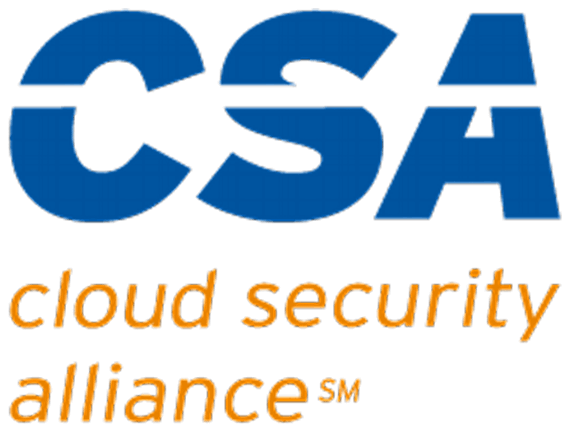In today’s data-driven world, handling sensitive information is a responsibility shared by businesses of all sizes. Whether you’re a healthcare provider managing patient records or an online retailer processing credit card payments, regulatory compliance is not just a box to check—it’s a business imperative. Unfortunately, many small to mid-sized businesses (SMBs) operate under the mistaken belief that compliance requirements only apply to large enterprises. The truth? Noncompliance can be just as devastating for a 10-person startup as it is for a Fortune 500 company.

In this article, we’ll demystify some of the most common compliance frameworks, explore the real-world consequences of noncompliance, and share how working with a Managed Service Provider (MSP) like Datacate can take the burden of compliance off your shoulders.
Understanding Compliance: HIPAA, PCI, and More
Let’s start with the basics. Here are a few of the most widely applicable compliance standards and what they mean:
HIPAA (Health Insurance Portability and Accountability Act)
HIPAA regulates the handling of Protected Health Information (PHI) by healthcare providers, insurance companies, and their business associates. If your business touches any health-related data, you are likely subject to HIPAA.
Key Requirements:
- Secure storage and transmission of PHI
- Access controls and authentication
- Data breach notification protocols
- Staff training and regular audits
PCI DSS (Payment Card Industry Data Security Standard)
PCI DSS applies to any organization that processes, stores or transmits credit card information. PCI compliance is non-negotiable whether you run a large e-commerce site or a small local business with a card reader.
Key Requirements:
- Firewalls and encryption
- Anti-virus and malware protection
- Secure password practices
- Regular vulnerability testing
Other Frameworks to Know
- GDPR (General Data Protection Regulation): Applies to data collected from EU citizens, even by companies based in the U.S.
- SOC 2: A framework for service providers storing customer data in the cloud, focusing on security, availability, processing integrity, confidentiality, and privacy.
- CCPA (California Consumer Privacy Act): Grants California residents increased rights over their personal data and imposes obligations on businesses that collect it.
It’s also important to understand that these frameworks often overlap. A healthcare business using cloud software and processing credit card payments may fall under multiple regulations. Compliance efforts must be coordinated and comprehensive, not siloed.
The Cost of Noncompliance: More Than Just Fines
Too often, SMBs weigh the cost of compliance but overlook the cost of noncompliance until it’s too late. Here’s what could be at stake:
1. Financial Penalties
Regulatory fines can be steep. HIPAA violations, for example, can reach up to $1.5 million per year. PCI DSS violations can range from $5,000 to $100,000 per month. GDPR penalties can reach 4% of your global revenue. These aren’t numbers that any small business can afford to shrug off.
2. Reputation Damage
Data breaches make headlines and erode trust. A single compliance failure can result in customer confidence loss, negative reviews, and a damaged brand image that takes years to rebuild.
3. Operational Disruption
A compliance breach often requires a complete overhaul of internal systems, pausing business operations during audits or remediation. The downtime alone can cripple small companies.
4. Legal Action
Noncompliance can sometimes lead to lawsuits, class actions, or other legal consequences. Even if you win, the cost of defending your business can be enormous.
5. Loss of Contracts or Business Opportunities
Many larger companies and government agencies now require proof of compliance as a condition of doing business. Failure to do so could result in losing existing clients or losing lucrative new contracts.
Compliance Doesn’t Have to Be Complicated
For many SMBs, compliance feels overwhelming because it involves unfamiliar jargon, complex technologies, and evolving rules. The good news is, you don’t have to do it alone.
Here are some actionable steps to get your compliance journey started:
1. Know What Data You Handle
Inventory the types of data your business collects, stores, and transmits. Are you managing medical records? Payment information? Employee data? Knowing what you handle helps identify which regulations apply.
2. Implement Basic Security Hygiene
Even simple measures can significantly reduce risk:
- Use strong, unique passwords
- Enable multi-factor authentication
- Keep software and systems updated
- Regularly back up data to a secure location
3. Train Your Team
Human error is one of the leading causes of data breaches. Regular training helps employees recognize phishing scams, follow security protocols, and handle sensitive data responsibly.
4. Document Everything
Keep thorough records of your compliance efforts. Policies, procedures, employee training logs, and audit results all demonstrate your commitment to compliance and can protect you in the event of an investigation.
5. Perform Regular Risk Assessments
Periodic risk assessments help identify vulnerabilities and measure your progress. These assessments should be repeated at least annually, or whenever major changes are made to your systems or operations.
6. Work with a Trusted MSP
This is where Datacate comes in. As a Managed Service Provider with experience in compliance-sensitive industries, we can help you:
- Assess your current compliance posture
- Implement secure IT infrastructure
- Monitor systems for vulnerabilities
- Maintain logs and audit trails
- Respond quickly to any incidents
Our team is well-versed in HIPAA, PCI, and other regulatory requirements, so we can design a managed IT solution tailored to your business needs and compliance obligations.
Why Datacate?
Compliance isn’t just about checking off boxes. It’s about creating a secure and trustworthy environment for your customers, employees, and stakeholders. At Datacate, we combine technical expertise with a deep understanding of compliance frameworks to help you:
- Prevent breaches before they happen
- Avoid costly downtime and penalties
- Stay up to date with changing regulations
Our secure hosting, cloud services, and network management solutions are built with compliance in mind. Whether you need help securing your email systems, encrypting sensitive data, or ensuring proper access controls, we provide the tools and support you need to stay compliant with confidence.
Beyond infrastructure, we offer consulting services to help you navigate compliance audits, prepare documentation, and understand your ongoing responsibilities. We also stay on top of emerging regulations so you can focus on running your business while we keep you protected.
Final Thoughts: Proactive Beats Reactive
Ignoring compliance doesn’t make it go away—it only increases risk. Taking a proactive approach and partnering with experts like Datacate can turn compliance from a burden into a competitive advantage.
The right MSP isn’t just a technology provider—they’re your strategic partner in reducing risk, ensuring uptime, and supporting growth. Don’t let regulatory hurdles derail your momentum.
Contact Datacate today to schedule a compliance readiness assessment and learn how our managed IT services can safeguard your business from costly mistakes.




